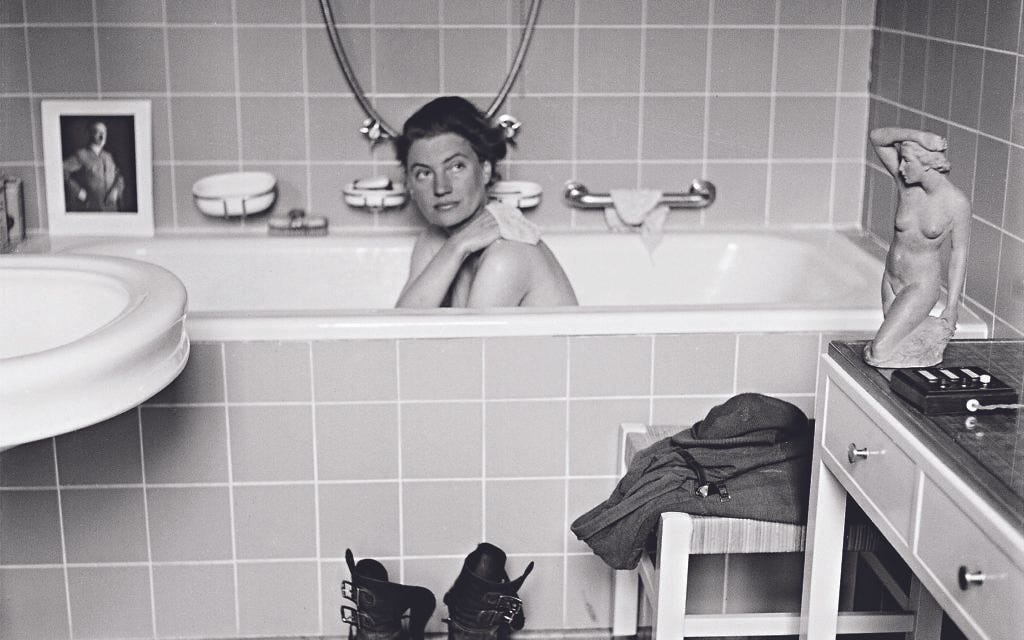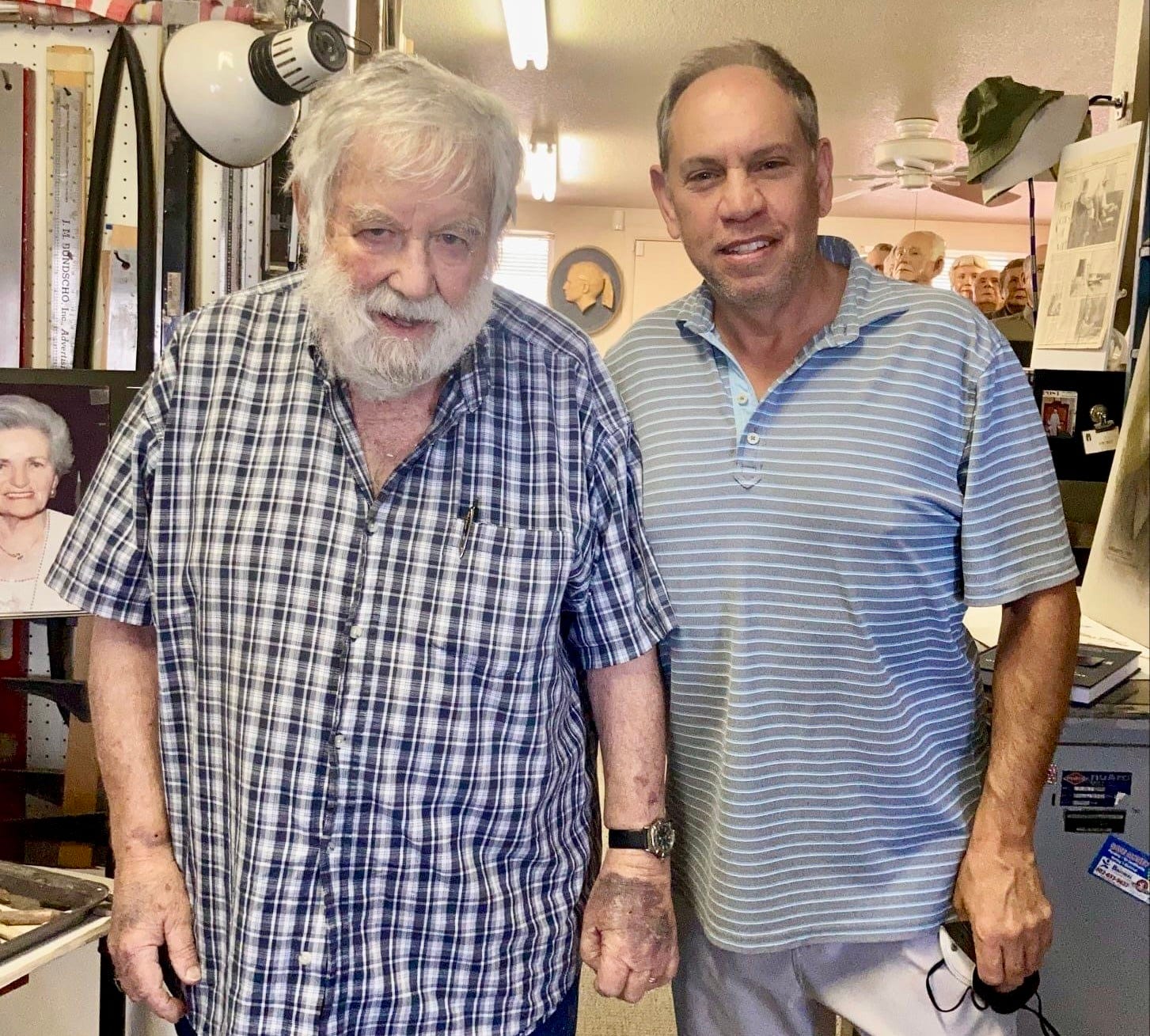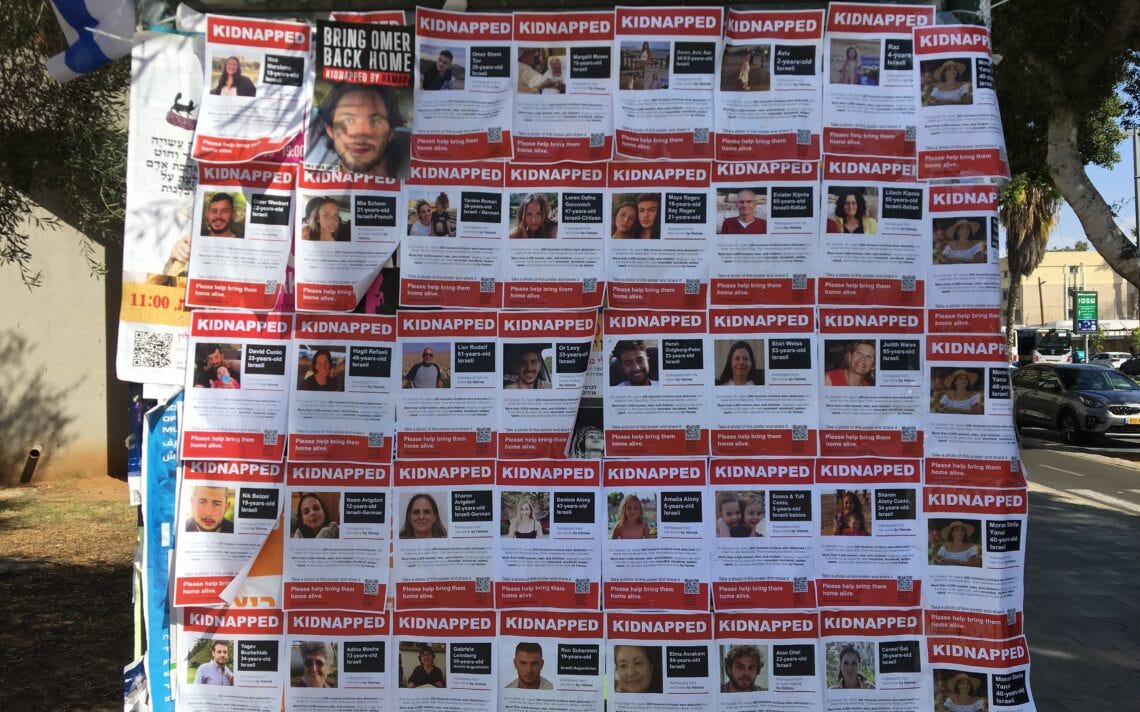The October 7th Imperative: NEVER Stop Telling Our Stories
"They don’t know HOW MANY times this has happened across the centuries: Jews backed into a corner — with no choice but to fight back and win wars that we never wanted to wage in the first place."
By Michael Golden

As if on cue, the new Kate Winslet film Lee opened this past week in the lead-up to October 7. Lee Miller was a fearless female photographer who fought through absurdly patriarchal press rules during World War II so she could record images of the death camps. Miller also became famous for her defiant act of taking a photo of herself in Hitler’s bathtub — on the same day that he killed himself.
More than 440 film narratives have been made about the Holocaust since 1940, an average of about five per year. That figure doesn’t count all of the mini-shorts or news series that have been produced, of which I’ve cut a couple. Nor does it include the countless books and print articles that have been written about the Shoah. I’ve tapped out a few of those too.
I must confess, there were times when I questioned whether or not there should still be so many retellings of the tragic events of the Holocaust. I wondered to myself whether readers — even a few of my own friends — might be thinking: “Okay, okay. We hear you, Michael. But change the record already.”

And then, almost inevitably, another historic brutality gets committed against the Jewish people. One year ago today, Hamas snuffed out more than 1,200 lives — then immediately followed up by vowing to repeat the killings. No shame. No reticence. Just the opposite: bigger plans.
Then it spread even wider. When the Islamic Republic of Iran fired 180 ballistic missiles at Israel last week — officially joining the attacks committed by its terrorist proxies, Hamas and Hezbollah — I found myself writing the following message to a friend in Tel Aviv:
People wonder why writers and producers keep telling the stories of the Shoah and other historical events of Jewish suffering. They don’t understand that the hatred and efforts to murder Jews is not something that just started over the last 150 years or since the establishment of the modern State of Israel. They don’t know HOW MANY times this has happened across the centuries. Again and again. Jews backed into a corner — with no choice but to exert self-defense and win wars that we never wanted to fight in the first place.
The phrase “Never Again” — in reference to the Holocaust — was first spoken by the prisoners who were liberated in 1945 from the Buchenwald concentration camp. Over the decades, these two words have become the mantra of the Jewish community in its efforts to never forget the six million Jews who were murdered — and to fight to prevent future genocides.
Some may say that the whole “Never Again” thing didn’t work because October 7th happened anyway. But that’s a terribly narrow way to look at it. The fact is that Israel got caught off guard by a terrorist regime that committed a brand of violent crime so heinous that even veteran Israeli military commanders had not imagined it possible.
The next fact is that through the testimony of countless brave Holocaust survivors, Jews have educated the world. Not only about the systematic horrors that were perpetrated just 80 years ago, but of how a people could endure, survive, and once again thrive.
This truth can be hard to see right now through all of the pain that Israelis are still dealing with, most especially the tortured families who have lost loved ones and the 101 hostages we are hoping against hope will be rescued or released.
But their stories are now our stories too. We cry for them. We hope for them. At the very same time.
The biggest irony connected to Jews retelling the stories of persecution and survival is that some misinterpret it as an aim toward sympathy. I have interviewed many survivors of the Holocaust — not a single one of them wants even a scintilla of sympathy. It is precisely the opposite: They want human beings to have empathy for each other and to learn the lessons of what pure hate can wreak.
Twenty-five years ago, I drove to L.A. to do a story on Steven Spielberg’s newly launched Survivors of the Shoah Visual History Foundation. I’ll never forget the words of Silvia Grohs-Martin, who as a teenager survived Auschwitz-Birkenau and two other death camps. She was 78 when we met. In a warm, yet almost frustrated tone, Silvia distilled it all down:
“You’re red, you’re blue, you’re green, you’re black, you’re a Jew, you’re not a Jew — whatever. Learn to live with each other. This is what I am teaching people, and this is what I can leave to the world.”

It sounds so simple. It should be simple. Alas, human beings.
Yet the storytelling tradition of the Jewish people has changed the world again and again. It is indescribably tragic that the murderous assault inflicted upon Jews a year ago must be added to the historical narrative. But so be it.
We will continue to tell the story. Our stories. I will continue to tell them. I’ll never stop.
MICHAEL GOLDEN is the Founder and Editor-in-Chief of JEWDICIOUS.
From unpacking history and politics to navigating the nuances of family and personal relationships to finding the human angle on sports and entertainment — plus our unsparing take on what’s happening in the Jewish world — the canvas at JEWDICIOUS is limitless! JOIN US!!




